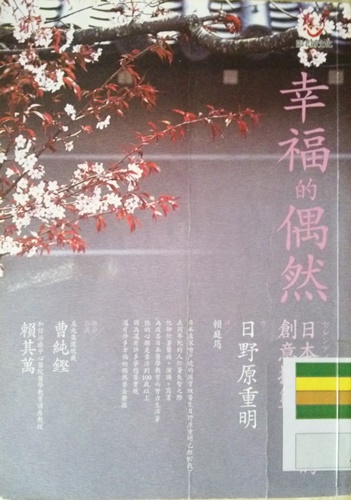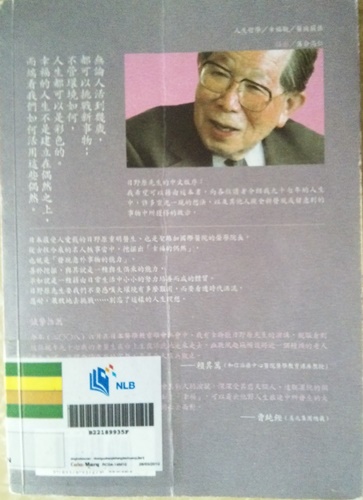What is ‘serendipity’?
‘Serendipity’ (幸福的偶然) is the theme of the book. ‘Serendipity’, according to the oxford online directory is ‘the occurrence and development of events by chance in a happy or beneficial way’.
日野原重明医生将它解释为“发现意外事物的能力”- 幸福的偶然,善于挖掘。
Dr Hinohara defines serendipity as the ability to discover something surprising. To him, the ability to go deeper to discover something surprising and beneficial is to him serendipity.
“人生,没有人知道会发生什么事。但我们也没有多余的时间抱怨自己不幸或运气差。看一个人如何面对事实, 化解难题,就可以了解他的生存价值。以我为例,在遇到意外状况时,大多时候我都能乐在其中。”
The paragraph can be translated as, “In life, no one knows what will happen. But we don’t have time to complain or grumble about our misfortunate. By looking at how one handles difficulties and resolves the issue, we would understand that person’s value. When I encountered difficulties, most of the time, I am able to take it as it comes.”
I believe Dr Hinohara’s optimism helped him lived to an old age of 105 and contributing to the medical profession up till the last few months before he passed away.
One would have thought that Dr Hinohara’s early life might have been a happy and carefree one for him to develop the habit of looking at experiences in a serendipitous manner.
Dr Hinohara’s childhood
However, Dr Hinohara’s had his fair share of difficulties. When young, his family lived in poverty. Dr Hinohara’s father was a priest and the meagre salary was used to support a family of nine (six children, wife, mother and himself). Dr Hinohara’s childhood goal to become a doctor was because his mother was ill when he was young. When he was in his first year medical university, he was sick with tuberculosis meningitis (结核脑膜炎), and for 10 months, he was having fever and had to be in bed. Although after his serious illness, he wanted to become a musician as music gave him comfort during that depressing period, in the end he followed through with his first childhood dream to become a doctor.
Learning from Nobel Prize winners
Dr Hinohara shared what he has learnt from the Nobel prize winners in the scientific field and their discoveries. Many times, great discoveries happened by chance, like how penicillin was accidentally discovered by Dr Alexander Fleming in 1928 from a contaminated petri dish. Often, recognition could come decades later. Which is why he advocates living a healthy and long life, so that there are better chances of you seeing the fruits of your labour.
He detailed his childhood, growing up and education years, what his first patient had taught him about patient care, as well as what he has learnt in his long established career in medicine in the book. If you understand Japanese, you might want to look for the Japanese version of the book.




